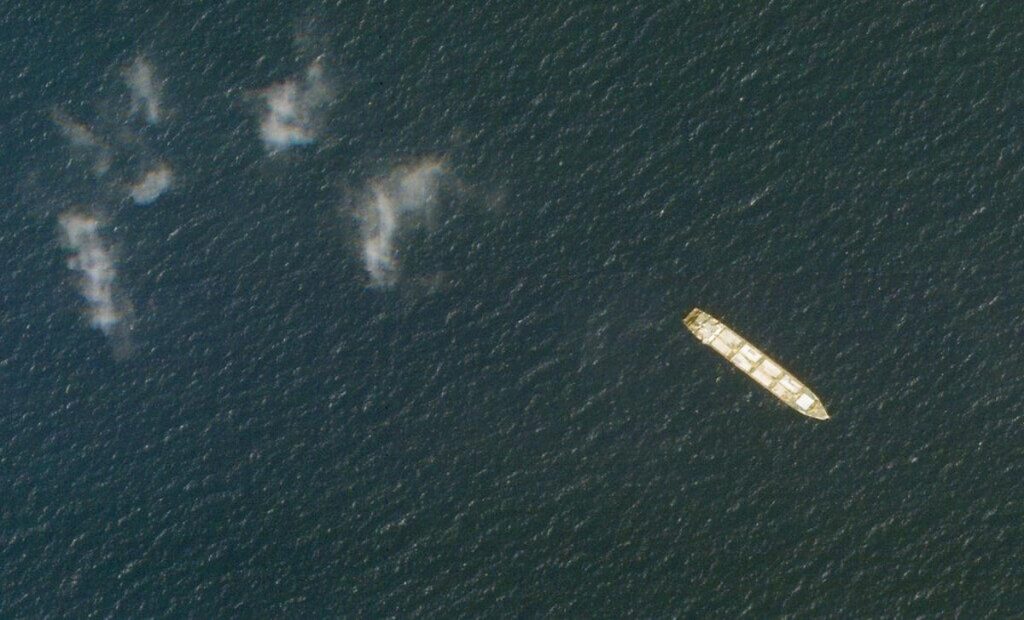As I have noted in this column, the worst fears of Israel's war in Gaza spilling over into the Middle East are sadly becoming a reality. Israel's ongoing destruction of Gaza and its Palestinian people is sending shock waves through the Islamic and Arab world, and now seems on the brink of a full-scale regional conflict.
Despite U.S. warnings against Yemen's Iran-backed Houthi regime, rebels have launched violent attacks on Western ships passing through the Red Sea. Videos of Houthis boarding ships and even dancing on their decks have frozen the waterway and helped drive up shipping costs as shipping companies reroute vessels.
The Biden administration made good on its threats of retaliation last week, carrying out four bombing raids on Houthi positions, but the battle-hardened Houthis have vowed that the US attacks will not stop them from continuing to blockade Israeli-linked ships.
“We will continue targeting Israeli-linked ships and bombing the occupied Palestinian territory until the aggression and blockade of Gaza ends,” Yemen's Houthi militia leader, Abdel Malik al-Houthi, said Thursday. Despite relentless U.S. bombing, the Houthis attacked a U.S.-owned ship in the Gulf of Aden on Monday and a Maltese-flagged bulk carrier in the Red Sea on Tuesday.
Meanwhile, Iran also appears to have become embroiled in the skirmish in the region, conducting multiple missile launches against targets in Syria, Iraq and Pakistan, some of which it claims are Israeli Mossad headquarters, such as Erbil in the Kurdish region of Iraq.
The deployment of US ground troops may not be far off: The first US casualties were reported when two Navy SEALs went missing in rough seas aboard a boat carrying weapons to the Houthis and heading to a Yemeni port.
Will the US fall prey to the Houthis?
What has surprised war analysts is Iran's attack on Pakistan's Balochistan province. Iran said it was targeting the militant group Jaish al-Adl, but a Pakistani government spokesman said the missiles only killed a few innocent children in a village. As expected, Pakistan retaliated by bombing “militant hideouts” inside Iran.
Tehran's official story is that it is retaliation for attacks on its territory by Israeli and US forces, but an aggressive Iran's longer-term goal appears to be to bolster Iranian-backed militias: Hamas in Gaza, Hezbollah in Lebanon, and the heavily armed Shiite militias known as the Popular Mobilization Forces (PMF) in Iraq.
India has also found itself drawn into the conflict after announcing that it supports Iran's version of events in Balochistan. This comes as an Indian warship, INS Visakhapatnam, responded to a distress call from a Marshall Islands-flagged cargo ship that had come under drone attack off the Gulf of Aden.
As the US strengthens its military presence in the Red Sea region, the superpower appears to have taken the Houthis' bait. The Iranian axis wants the US to be drawn into multiple regional conflicts, in the hope that this will establish a stronger pan-Arab alliance and help the Houthis and other Iranian allies such as Hezbollah to strengthen their regional power.
Meanwhile, Israel's far-right government has ignored US calls to end the fighting and is prepared for a long fight. Again, local politics prevail: Prime Minister Benjamin Netanyahu and his allies are confident that a ceasefire and elections will oust them from power, and they want to keep the Gaza war going for as long as possible.
World Bank warning
There are growing alarms about the impact of the twin ongoing wars in Ukraine and Gaza, the risk of further catastrophe in the Middle East, and a slowdown in the Chinese economy on the global economy. Global output growth is expected to reach 1.2 trillion yen ($1.2 trillion).
The World Bank's biannual Global Economic Prospects report warned that global economic growth will slow further to 2.4% from 2.6% in 2024.
This puts the global economy on track for its weakest five-year period in the past three decades. “Without a major course correction, the 2020s will be remembered as a decade of wasted opportunity,” said World Bank Group chief economist Indermit Gill. China's growth is expected to slow to 4.5% this year from 5.2% in 2023, its slowest growth rate in three decades excluding the pandemic-induced recession. U.S. growth is also expected to slow to 1.6% this year from 2.5% in 2023 due to high interest rates and government spending cuts.
The escalating fighting could send oil and food prices soaring and rekindle inflation. The Houthi conflict in the Red Sea has forced shipping routes via the much longer Cape of Good Hope, which will boost oil prices, freight rates and insurance costs.
The scenario is not rosy for India as investments in a slowing global economy are likely to take a hit and oil prices, a major import source for India, are likely to rise despite the disappearance of discounted Russian crude.
In short, it is in everyone's interest to de-escalate this man-made crisis, and the starting point would have to be for the United States to withdraw its support for Israel's unjust war and enforce a ceasefire in the Gaza Strip.



